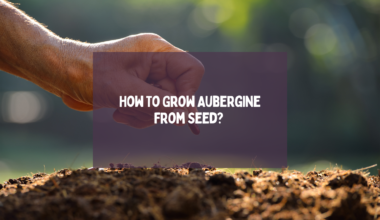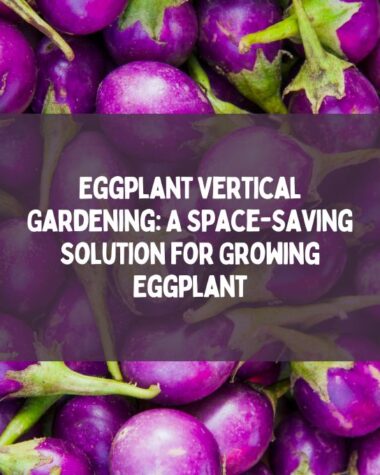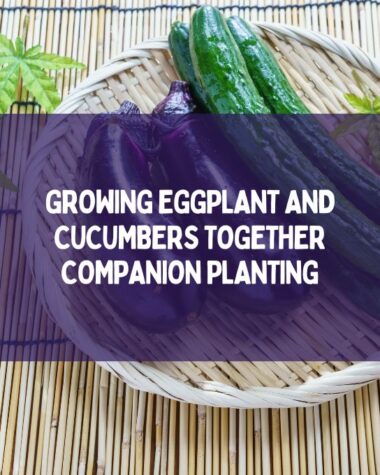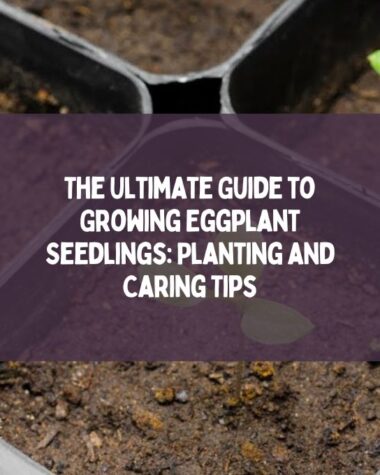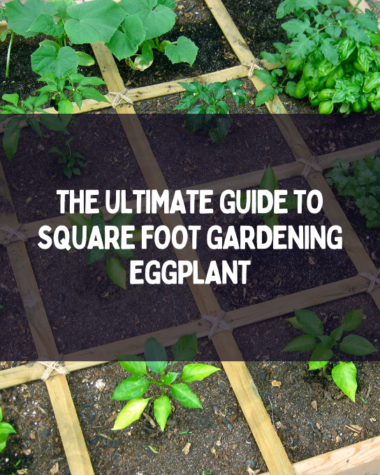Growing your own eggplants can be exciting and rewarding, but it can also come with challenges when they don’t seem to thrive as expected. Understanding the most common reasons behind stunted eggplant growth is essential to helping you enjoy a bountiful harvest from your garden.
I’ve recently been trying to grow some eggplants in my garden, but I’ve been facing some challenges along the way. After doing some research, I’ve discovered that there are a few common reasons why eggplants may not be growing as well as they should.
In this article, I’ll be sharing some of the tips and solutions that I’ve found to help address these issues and hopefully help you grow healthy and productive eggplants in your own garden.
So, if you’ve been having trouble with your eggplants, keep reading to learn more!
Reasons Why Your Eggplants Are Not Growing
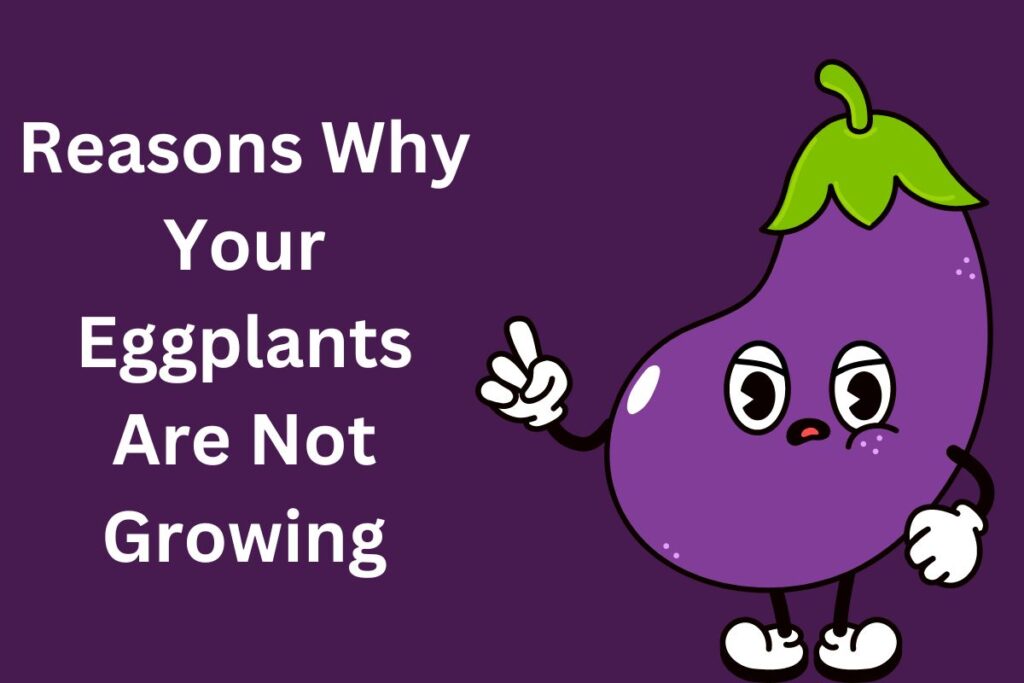
Eggplants may fail to grow due to factors such as insufficient sunlight, poor soil quality, improper watering, and pest and disease infestations.
Insufficient Sunlight
Insufficient sunlight is a common issue that can negatively impact eggplant growth. Like most fruit-bearing plants, eggplants require ample sunlight to produce energy through photosynthesis, which helps them grow and develop fruits.
If your eggplants are not getting enough sun exposure, you might notice stunted growth or poor fruit development. For instance, the plant’s leaves may appear pale green instead of the vibrant dark green typically seen in healthy specimens.
To address this problem, consider transplanting your eggplants to a sunnier spot in your garden or maximizing available natural light by pruning taller plants nearby that block the sunlight.
Poor Soil Quality
One of the most common reasons for eggplant plants failing to grow is poor soil quality. Eggplants require well-draining, nutrient-rich soil that has a pH between 6.0 and 6.8 to thrive.
To ensure healthy eggplant growth, consider adding organic matter like compost, manure, or bone meal to your garden soil before planting.
In addition, regularly testing your soil’s pH levels with an inexpensive kit or through a local agricultural extension office can help identify any deficiencies that need to be addressed.
Improper Watering
One of the biggest mistakes that new gardeners make when growing eggplant is improper watering. It’s easy to either overwater or underwater your plants, both of which can lead to stunted growth and poor fruit production.
To ensure healthy eggplant growth, it’s important to monitor moisture levels in the soil regularly. Eggplants prefer slightly moist soil but don’t like standing water. A good rule of thumb is to water deeply once a week or whenever the top inch of soil feels dry to the touch.
Mulching around each plant with organic matter like straw or bark helps retain moisture in the soil and reduces evaporation as well.
Pest And Disease Infestations
Pests and diseases are common problems when it comes to growing eggplants. Some of the most common pests that can attack your eggplant plants include aphids, flea beetles, and spider mites.
These insects feed on the leaves of the plant, which can cause them to wilt and die prematurely.
On the other hand, diseases such as verticillium wilt, fusarium wilt, and bacterial spot can also take a toll on your eggplants’ health. You may notice symptoms like yellowing or browning leaves or stem rotting in affected plants.
It’s best to use natural remedies like insecticidal soaps or neem oil sprays for controlling these pests rather than harsh chemicals that could harm you and the environment.
Related Reading:
- 18 Common Aubergine Growing Problems and Their Solutions
- How to Plant Eggplant in Plastic Bottles?
- Eggplant Companion Plant Gardening: Tips And Tricks For A Bountiful Harvest
- When to Harvest Eggplants – Find Out the Best Time to Pick Your Eggplants!
Tips For Growing Healthy Eggplants
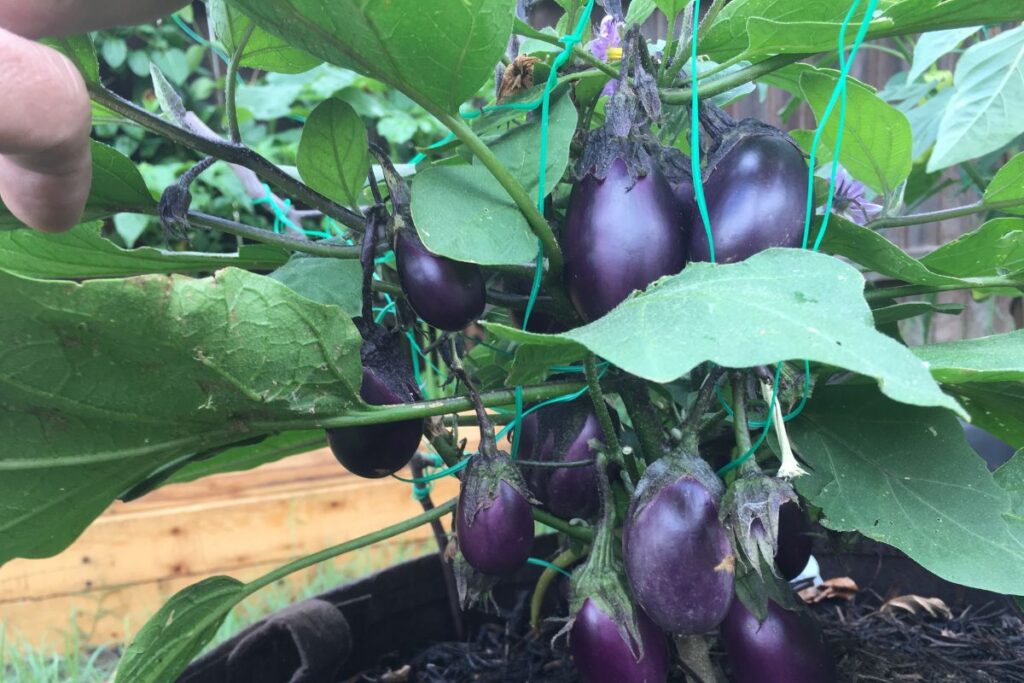
To ensure the healthy growth of your eggplants, choose a sunny and well-draining location with pH-balanced soil, water deeply but infrequently, implement pest control measures such as using companion plants or row covers, prune regularly to promote air circulation, and fertilize with organic material like compost.
Choosing The Right Location And Soil
The location and quality of the soil are crucial factors in growing healthy eggplants. Here’s what you need to consider:
- Look for a spot with full sun exposure, where the plants will receive at least 6-8 hours of direct sunlight per day.
- Opt for well-draining soil that is rich in organic matter, with a pH level between 5.5 and 6.8.
- Avoid areas with compacted or heavy clay soil, which can impede root growth and nutrient absorption.
- If your soil is poor or unsuitable, consider amending it by adding compost, aged manure, or other organic materials.
- When planting in containers, choose pots that are at least 12 inches deep and wide, with drainage holes to prevent waterlogging.
By choosing the right location and soil type for your eggplants, you’ll provide them with the best chances for robust growth and optimal yields.
Ensuring Adequate Sunlight And Water
To grow healthy eggplants, it’s crucial to ensure they receive proper sunlight and water. Here are some tips for achieving this:
- Choose a sunny location: Eggplants require full sun to thrive. Look for an area that receives at least 6-8 hours of direct sunlight daily.
- Provide consistent watering: Eggplants prefer evenly moist soil, so be sure to water them deeply once or twice a week depending on the climate and weather conditions.
- Use mulch: Adding a layer of organic mulch, such as straw or leaves, can help retain moisture in the soil and regulate the temperature around the plant’s roots.
- Consider drip irrigation: If you have a large garden or find it difficult to water regularly by hand, consider installing a drip irrigation system to ensure your plants receive consistent moisture without overwatering.
- Avoid overhead watering: Using sprinklers or other methods of overhead watering can lead to disease and pest problems with eggplants. Try to keep water off the leaves and focus on watering the soil around the base of the plant instead.
By following these tips and ensuring your eggplants get enough sunlight and water, you’ll be on your way to healthy growth and a bountiful harvest!
Implementing Pest Control Measures
One of the biggest challenges for eggplant growers is dealing with pest infestations. Here are some effective pest control measures to help protect your eggplants:
- Regularly inspect your plants and remove any diseased or damaged leaves or fruit.
- Use insecticides that are safe for vegetable plants, following instructions carefully and avoiding overuse.
- Encourage natural predators by planting beneficial flowers nearby or using biological controls like ladybugs or lacewings to eat aphids and other pests.
- Covering plants with row covers can help protect them from pests if done properly.
- Apply neem oil or similar natural repellents directly to the foliage in the early morning hours, especially during hot weather periods when insects are most active.
By implementing these proven pest control measures, you’ll be able to keep your eggplants healthy and thriving all season long. Remember to always follow best practices for pesticide use and consult your local extension service for more information on pest management strategies.
Pruning and fertilizing Appropriately
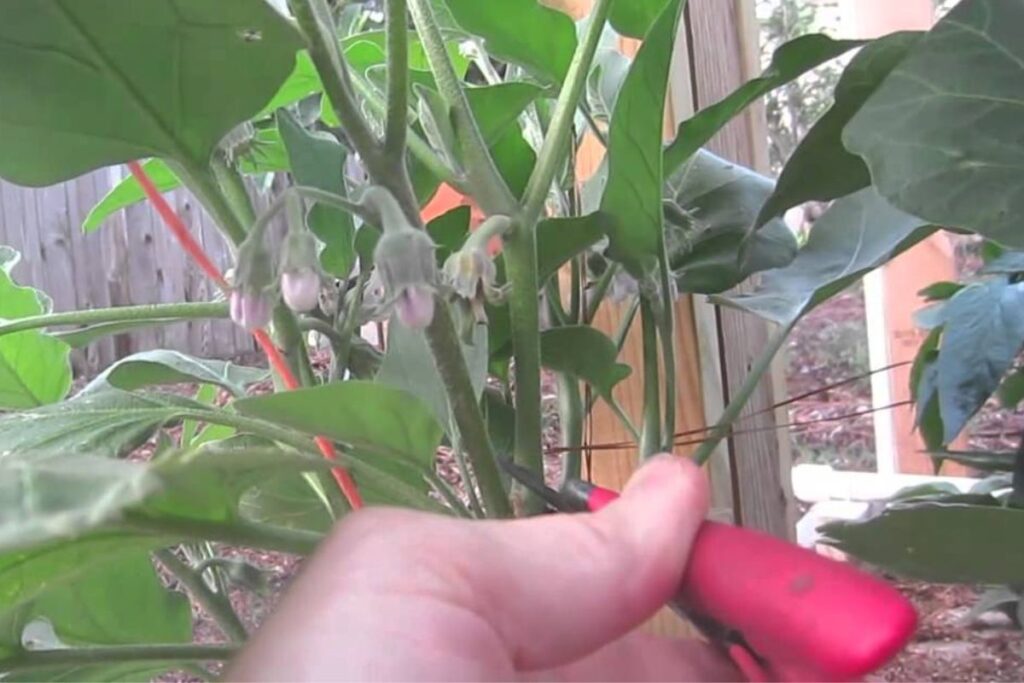
Pruning and fertilizing your eggplants is essential for their proper growth and yield. Here are some tips to ensure you do it correctly:
- Prune the plant once it reaches about 18 inches tall. Remove the bottom leaves up to the first set of flowers or fruit. This will encourage the plant to produce more fruit.
- Pinch off any extra growing tips once they reach six inches long. This will concentrate energy on the existing fruits and prevent the plant from becoming too bushy.
- Apply a balanced fertilizer with equal parts nitrogen, phosphorus, and potassium every two weeks during the growing season. This will promote healthy growth and fruit development.
- Use a foliar spray of fish emulsion or compost tea every two weeks, as well. This will provide additional nutrients directly to the leaves.
By following these pruning and fertilizing techniques, you’ll ensure a healthy crop of delicious eggplants!
Related Reading:
- How Proper Eggplant Spacing Can Maximize Your Harvest?
- 10 Tomato Seedling Problems and How to Protect Them?
- Diseases of Pumpkin Plants: Identification, Treatment, and Prevention Strategies
- Troubleshooting Carrot Growing Problems: Why Won’t My Carrots Develop?
- How to Find, Prevent, and Treat Zucchini Plant Problems?
- The Ultimate Guide To Cucumber Pests and Diseases
Solutions For Common Eggplant Growing Problems
To address common eggplant growing problems, solutions include using row covers to protect from pests, hand pollinating if necessary, treating any pest or disease infestations promptly, and utilizing season extenders like hoop houses or cold frames.
Using Row Covers
Row covers are a simple yet effective method for protecting your eggplants from pests and harsh weather conditions. These lightweight blankets can be placed over the plants, creating a physical barrier that keeps insects and other small animals away from your crop.
When using row covers, it is important to ensure that they are secured tightly around the edges so that pests cannot find their way in. You should also periodically check on your plants underneath the cover to make sure they are getting enough water and air circulation.
Hand Pollination
If you notice a lack of fruit production in your eggplants, it could be due to insufficient pollination. This is especially common when there aren’t enough bees and other pollinators around.
Luckily, you can easily hand-pollinate your eggplants using a small brush or even just your finger.
Be careful not to damage delicate flowers while performing this task. You can also shake or tap the plant gently to help transfer pollen between flowers.
Treating Pests and Diseases
Dealing with pests and diseases is crucial to ensuring healthy eggplant growth. Here are some tips for treating these common problems:
- Identify the pest or disease: Before treating any issue, you must know exactly what you’re dealing with. Research common eggplant pests and diseases so you can identify what’s affecting your plants.
- Use natural remedies first: There’s no need to resort to harsh chemicals right away. Many natural remedies can effectively treat pests and diseases without harming your plants or the environment. For example, neem oil works well as an insecticide, while copper fungicide can prevent and treat fungal infections.
- Remove affected plants and debris: If a plant is severely affected by a disease, it may be best to remove it entirely to prevent the problem from spreading to other plants in the area. Make sure to dispose of any affected plant material properly.
- Use pesticides as a last resort: Only use chemical pesticides if all other methods fail or if the infestation or infection is severe enough that immediate action is necessary. Always follow label instructions carefully and avoid applying them when pollinators are active.
- Rotate crops: To prevent pests and diseases from recurring in the same location year after year, rotate your crops seasonally.
By following these tips, you can effectively treat pesky pests and diseases that may hinder your eggplant’s growth.
Using Season Extenders
Season extenders are a great option for gardeners who want to enjoy their eggplants for longer periods. These devices help shield plants from extreme weather conditions such as frost and cold temperatures, ensuring they continue to grow strong until it’s time for harvest.
Common season extenders include row covers, cloches, greenhouses, and high tunnels. Row covers can be made from lightweight materials like spun-bonded polyester that provide a protective barrier around the plant without blocking out too much light or airflow.
Greenhouses or high tunnels are more substantial structures that offer year-round protection while also providing ample growing space and control over environmental factors such as temperature and humidity levels.

